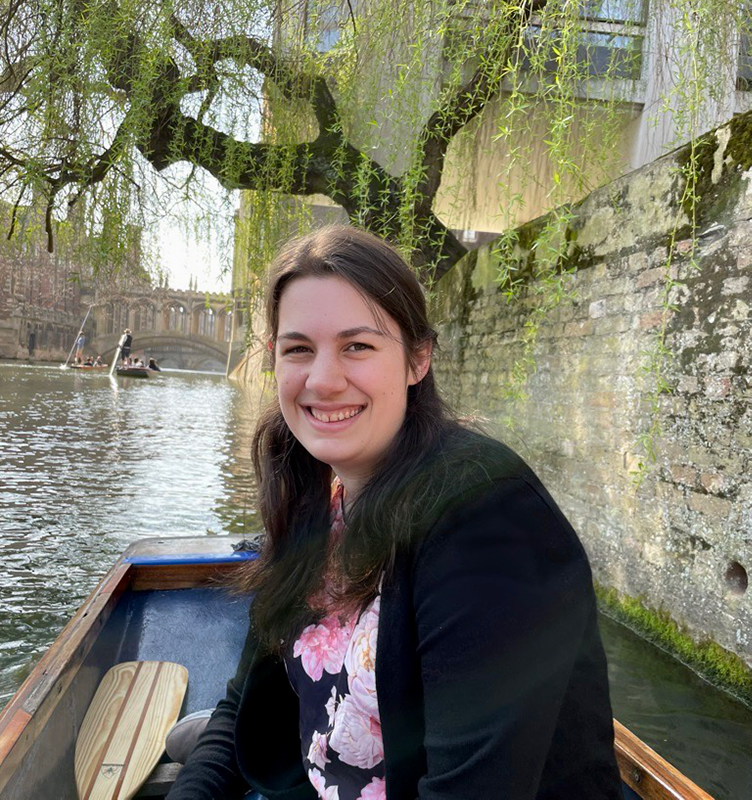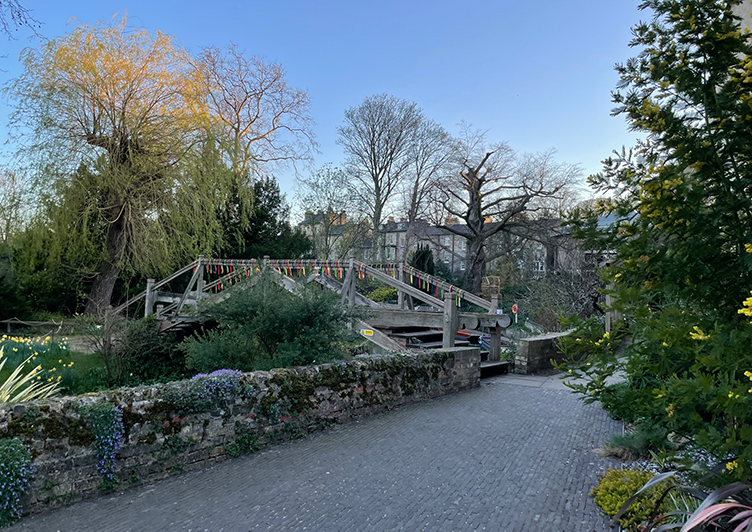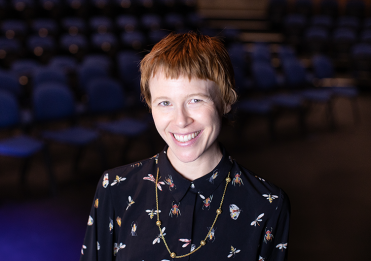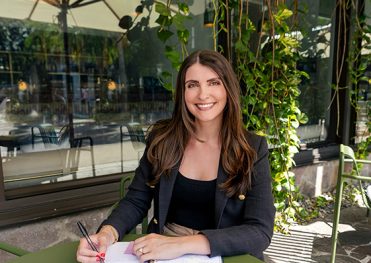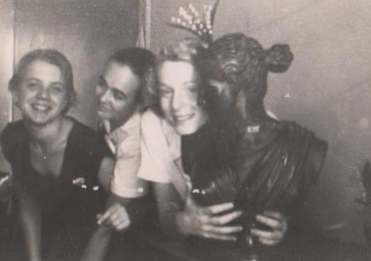What motivated you to pursue your PhD overseas?
From a personal development point of view, I’d been lucky enough to do a semester exchange in Scotland while I was an undergraduate student at The University of Queensland. It was an incredible experience—having the independence to explore a new country, learn about a different culture, and meet people from all over the world. I fell in love with travel, and many of my best memories come from some of those adventures. I was always hoping to spend at least part of my early career overseas after that initial experience—and hopefully in a slightly more permanent capacity than a few months abroad! As it worked out, a PhD turned out to be a great opportunity to do just that.
Academically, studying overseas (and somewhere different to your undergraduate university) offers a lot of benefits. It significantly expands your networks and exposes you to new subject areas and ways of thinking. For my research area, the UK has a very strong network of researchers in the field, and particularly in Cambridge where my supervisor was one of the original developers behind the software my research is based upon. The UK postgraduate community, particularly at a university like Cambridge, tends to be very international—offering opportunities to meet people from all over the world.
What have you enjoyed most about your time at Cambridge?
One of the differentiating facts about Cambridge is that it is a Collegiate university—meaning you must be part of a college to be a member of the university. My current college, Darwin College, is undoubtedly where many of my best memories are from, thus far; from Tuesday Salsa classes; to formal dinners; night punting; or even just sitting in the gardens on New Year’s Eve with friends! Darwin is a postgraduate only college, which means it has an incredible community of masters and PhD students from all over the world—and I’ve made some great friends as a result. While Darwin still has some of the fun traditions (such as wearing academic gowns to formal dinners), it’s also a relaxed college—which really makes it feel like a home and removes some of the typical boundaries between academic staff and students. Beyond college, I’m also quite active in the music scene (something I first fell in love with thanks to our brilliant Instrumental Music department at Grammar). I play the violin in the graduate orchestra, and also am in the university Ceilidh band—playing at a folk music session in a pub after rehearsal on a Thursday night is always an amazing way to destress after a busy week.
It would be remiss of me not to mention some of the academic highlights. Cambridge is an incredible place to do research. The college environment facilitates interdisciplinary conversation and sharing of ideas, while the departments themselves are full of leading researchers and offer a great research environment. For me some of the highlights have included sitting in casually on lectures by a Fields Medallist (yes, they still use blackboards!), weekly theory tea chats with other academics and PhD students in the theory research group—which can cover anything from a research discussion to holiday plans—and regular opportunities to present my own work, as well as learn about the work of others in the department.
Cambridge itself is a beautiful city to live in. The history amazes me every day, and I don’t think I’ll ever get tired of cycling through the city centre and exploring the grounds of the different colleges and their history.
Has studying overseas given you a different perspective on either your long-term career goals or future ambitions?
I’m interested in pursuing a career in academia, particularly teaching and research, so it has been fascinating to see the differences (and commonalities) between the Australian and UK education systems. In many ways, I’d say it has given me a new perspective on the range of career opportunities in academia, and the similarities and differences in those jobs depending on the country in which you are based. Studying overseas has also really broadened my professional network—and particularly the academic community at Cambridge is very international. In many ways, the conversations I’ve had, and people I’ve been able to meet, have had just as much of an impact on helping me define my long-term career goals.
Before commencing your study at Cambridge you held a leadership position with Robogals. Can you tell us more about this and your passion to inspire more young women to pursue careers in STEM?
Robogals was a huge part of my life for many years, combining my interest in education and engineering with my passion for diversity in STEM. The work I did in local communities with Robogals helped me discover my passion for STEM education which, 10 years later, I hope will be a large part of my career. It was incredible to be able to impact thousands of current school students, and particularly young women, through our workshops and regional initiatives. The Robogals community itself was an incredible support network and offered many professional development opportunities as I progressed through my undergraduate studies. I was even able to be a part of the UK Robogals community when I went on exchange! And to this day, I’m proud of the work I did to help grow the Brisbane chapter from a group of six or seven of us to one of the strongest chapters in the country.
My time as APAC Regional Executive Officer was both equally challenging and rewarding. It was an opportunity that I didn’t expect to get when I first applied, yet suddenly, at 21, I found myself leading the APAC region of an international not-for-profit. It was one of the steepest learning curves I’ve ever faced, but I’m also incredibly thankful for the people I was able to work with, the leadership and management skills I was able to develop so early in my career, and the wider impact I was able to have on both the Robogals community and young women across the APAC region through my time in that role.
Diversity in STEM to me is a no-brainer, which is why organisations such as Robogals are so important. Ultimately, STEM fields all come down to problem solving, and innovation—so how can we find the best solutions to these problems without having diverse teams? Beyond that, it also comes down to equal opportunity. I firmly believe that no matter your gender, you should be able to pursue a career in an area that interests you, and also have an equal chance to discover what that field may be in the first place. That’s what organisations like Robogals are all about, giving young women the opportunity to learn about engineering (from quite a young age) in a space they know is for them, and hopefully provide some positive role models along the way!
While I’m no longer involved in Robogals, I keep up my involvement in the diversity and STEM education space, working in outreach for Cambridge University, and currently as mentoring chair for Women@CL.
Where do you see yourself in the next five years? Do you see yourself returning to Australia or is the UK now home?
The five-year question is always a tricky one. In fact, one piece of advice I tend to give to those who ask is to have an idea of where you want to go, but also have flexibility in those plans because the best opportunities are often the ones you were not expecting.
Australia for me is home, and I think it always will be. We have some great universities from the perspective of an academic career, and a lot to be thankful for! However, equally the UK is fast becoming my ‘second’ home, and a country I greatly enjoy living in (my friends and family often comment on how quickly I’ve acclimatised to the UK given my dislike for hot weather in Australian summers). I’ve been able to begin building up some great networks here, and from the perspective of an academic career, there are a lot of opportunities in the UK (and generally internationally) while in that early career stage. So, in the short term, I’m definitely considering staying abroad for at least a few years post my PhD, but in the long term, who knows!
What advice would you give to a Grammar Woman who is considering completing their study overseas?
If you have the opportunity, take it! At the very least, it is always worth applying for something—even if it does seem like a bit of a ‘dream’. Cambridge to me always seemed like a far-off dream, particularly from a funding perspective, and I know when I applied I wasn’t expecting to get a scholarship. So just have a go and see where an application takes you.
Practically, do your research. Reach out to people at the universities—whether it is academics you are interested in studying under or to current students. There’s a great community of Australians studying here in the UK (and in many countries), so you’ll likely find at least one of us willing to have a chat.
Ultimately, studying overseas, whether it’s for a semester abroad or a full degree, is an incredible experience and one I’d absolutely recommend if it’s something you are interested in doing.
